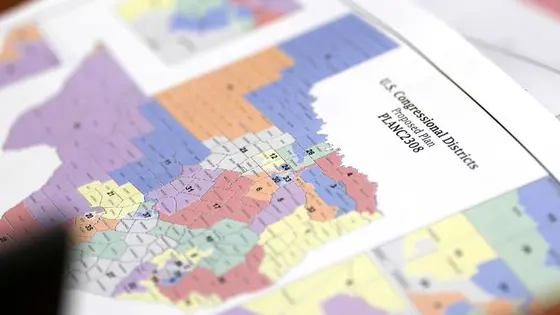T4K3.news
Texas issues civil arrest warrants for fleeing Democrats
Texas Republicans have voted to issue civil arrest warrants as Democrats boycott a redistricting session.

Texas Republicans are taking drastic measures against Democrats who left to stop redistricting efforts.
Texas Republicans issue civil arrest warrants for fleeing Democrats
Texas Republicans have scheduled a session for Tuesday after voting to issue civil arrest warrants for Democratic lawmakers who fled the state. This action was taken to address the absence of enough members for a quorum needed to move forward with the GOP-led redistricting agenda. Many Democrats have sought refuge in states like Illinois, New York, and Massachusetts, where Texas law enforcement lacks authority. Voting rights attorney Sarah Chen highlighted that the Democrats have not committed any criminal acts, making extradition unlikely. Republican leaders, such as Speaker Dustin Burrows and Governor Greg Abbott, expressed their intent to track down and return absent lawmakers, emphasizing that the civil warrants aim to uphold legislative duties. Abbott additionally hinted at potential financial penalties for absenteeism and suggested that these lawmakers may have forfeited their positions due to their absence.
Key Takeaways
"Any sort of work with other states or federal law enforcement would be more of like calling in a favor rather than any sort of legal obligation."
This highlights the challenges Texas Republicans face in enforcing the warrants for absent lawmakers.
"It’s imperative that they be swiftly arrested, punished, and face the full force of the law for turning their backs on the people of Texas."
Texas Attorney General Ken Paxton emphasizes the seriousness of lawmakers abandoning their duties.
"To those who are absent: Return now. Show the courage to face the issues you were elected to solve."
Speaker Dustin Burrows urges absent lawmakers to fulfill their responsibilities to their constituents.
"If law enforcement arrests me, I will go peacefully. But I am doing this because I’m fighting for my constituents."
State Rep. James Talarico expresses the motivation behind the Democrats' decision to leave Texas.
The situation in Texas reveals deepening polarization within the state government. The Republican effort to issue arrest warrants is a direct response to a political strategy by Democrats to counteract what they perceive as gerrymandering. This confrontation raises questions about legislative power and the limits of authority when members choose to protest by leaving the state. Furthermore, it emphasizes the lengths to which the Republicans are willing to go to maintain control over the redistricting process, as they seek to enhance their chances in upcoming elections. In a broader sense, this conflict mirrors nationwide trends where partisan divides are increasingly determining not just policy, but also methods of political engagement.
Highlights
- Fleeing lawmakers are not breaking any laws, making extradition unlikely.
- This is about fighting for constituents, not just politics.
- Legislative power clashes are becoming more common in America.
- The people of Texas are watching the unfolding drama closely.
Potential backlash against Texas Republicans for extreme measures
The issuance of civil arrest warrants may prompt strong public reaction and condemnation, particularly as it mirrors efforts to suppress political opposition. Critics may label these actions as a violation of democratic principles.
The unfolding events in Texas could set a precedent for future legislative conflicts across the country.
Enjoyed this? Let your friends know!
Related News

Texas governor orders arrest of fleeing lawmakers

Texas redistricting standoff escalates

FBI assists in locating Texas lawmakers

Texas Democrats refuse to return amid redistricting crisis

Texas Governor threatens arrests over redistricting

Texas AG moves to remove absent Democrats in redistricting clash

Texas Democrats leave state to block redistricting effort

Texas Democrats Face Arrest for Leaving Over Redistricting
